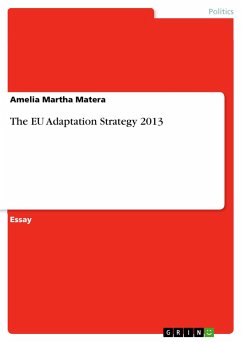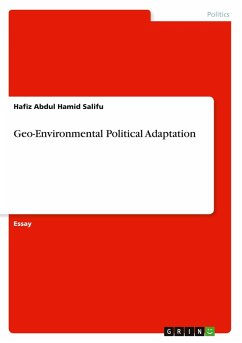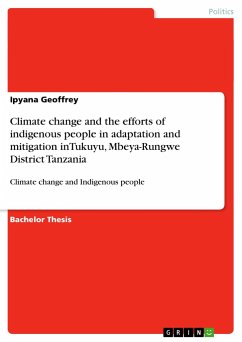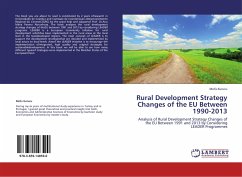Essay from the year 2018 in the subject Politics - Environmental Policy, grade: A, University of Malta (Institute for European Studies), language: English, abstract: Climate policy for the European Union (EU) was irrelevant until the 70s, it became a topic on the political agenda only in the 80s, and today its policy includes adaptation.The European Union recognises that some of the impacts of climate change caused by past emissions are irreversible. The policy responses of climate change are adaptation and mitigation. The main reason for a weak adaptation strategy in mid 80s and 90s was the reluctance of the Member States (MS) to give up power to the supranational institutions. But it was only when the IPCC report put emphasis on adaptation arguing that it should concern even industrialized countries and not only Developing countries (DC) that things started to change. The EU has adopted in 2013 the Adaptation Strategy, which has been strengthened since the 5th National Communication.The aim of this paper is to critically assess EU's current trends in adaptation actions, as well as future adaptation requirements. In order to reach this goal this paper will rely on two main documents: sixth EU's National Communication to the UNFCCC and to the correspondent UNFCCC's in-depth review. The first part will give a brief overview of the EU adaptation strategy, its development and the main official documents, the second part is a more detailed analysis and criticism on the actions described in the current EU adaptation strategy. Before the conclusion, the main criticism will be highlighted and the future adaptation requirement outlined.
Hinweis: Dieser Artikel kann nur an eine deutsche Lieferadresse ausgeliefert werden.
Hinweis: Dieser Artikel kann nur an eine deutsche Lieferadresse ausgeliefert werden.








